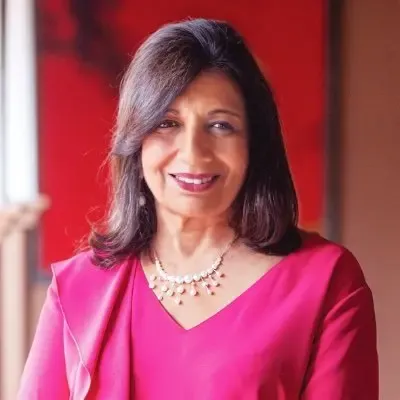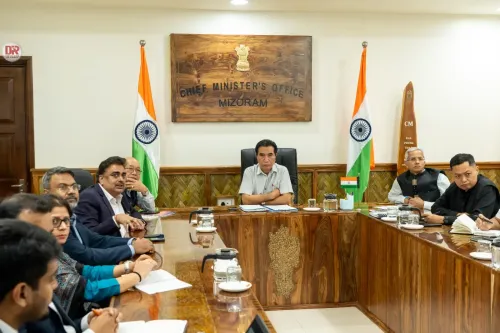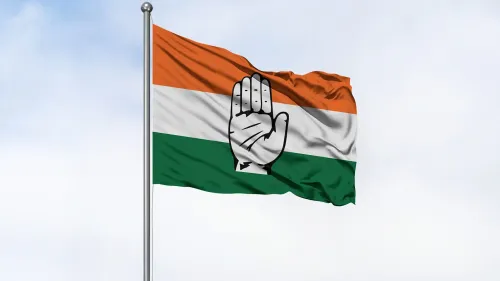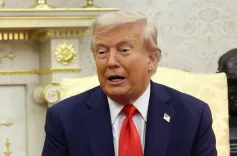Is PM Modi Truly Doing What's Best for India? Mary Millben's Bold Response to Rahul Gandhi
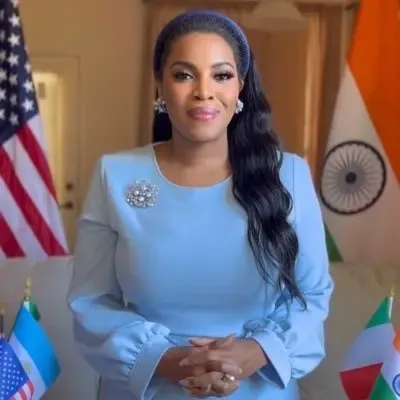
Synopsis
Key Takeaways
- Mary Millben supports PM Modi's diplomatic strategies.
- Rahul Gandhi criticizes Modi's handling of international relations.
- Trump claims India agreed to stop buying oil from Russia.
- India's trade negotiations with the US are ongoing.
- There are concerns about India's energy import diversification.
New Delhi, Oct 17 (NationPress) US artist Mary Millben on Friday took a stand against Congress leader Rahul Gandhi regarding his comments about Prime Minister Narendra Modi and US President Donald Trump. She asserted that the Indian Prime Minister is striving to do the utmost for his nation, demonstrating a clear understanding of the larger strategy and the nuances of diplomacy.
Millben's statement followed Gandhi's criticism of the government in reaction to Trump's assertion that India had consented to cease oil imports from Russia.
On the social media platform 'X', Millben stated: "You are mistaken, @RahulGandhi. PM @narendramodi is not intimidated by President Trump. His grasp of the long game and strategic diplomacy with the US is commendable. Just as @POTUS prioritizes America’s interests, PM Modi is dedicated to what is best for India, and I commend that. This is the essence of leadership—doing what is right for one's country."
She continued, "I don’t expect you to grasp this type of leadership, as you lack the necessary acumen to lead India. It may be best for you to return to your ‘I hate India’ tour, which seems to have only one audience member—yourself."
Mary Millben is an American singer, actress, and cultural ambassador who first met PM Modi during his state visit to the US in June 2023.
She performed the Indian national anthem at the Ronald Reagan Building in Washington, D.C., in 2023. After her performance, she sought PM Modi's blessings by touching his feet, an act that garnered significant media attention.
Her comments came in response to Rahul Gandhi’s ambiguous remarks about PM Modi following Trump’s statement.
Trump had referred to Prime Minister Narendra Modi as a "great man" and India as "an incredible country," expressing his willingness to meet Modi during the forthcoming ASEAN Summit in Malaysia.
The US President noted that he was "assured" that India would halt oil purchases from Russia but acknowledged that it would not happen "immediately."
In response to Trump’s claims, Rahul Gandhi took to X, stating, "PM Modi is intimidated by Trump."
"1. Allows Trump to dictate and announce that India will not buy Russian oil. 2. Continues to send congratulatory messages despite repeated snubs. 3. Cancelled the Finance Minister's visit to America. 4. Skipped Sharm el-Sheikh. 5. Doesn't contradict him on Operation Sindoor," the Leader of the Opposition added.
Trump’s claims come as reports indicate that India maintained its position as Russia's top oil supplier in September, sourcing 34% of its crude imports from Moscow.
Speaking to reporters, Trump mentioned that if India ceases to buy Russian oil, it would make it "much easier" to resolve the ongoing conflict.
"He assured me today that they will not be buying oil from Russia…You can't do it immediately. It’s a bit of a process, but it will soon come to an end, and all we want from President Putin is to stop this," he emphasized.
"In a short time, they will cease to buy oil from Russia, and they will return to Russia post-war," he underlined.
Trump also indicated that he would exert pressure on China to follow suit.
The Trump administration had imposed an additional 25% tariff on India in August for purchasing Russian oil while taking no action against China.
Trump’s statements coincide with India’s trade negotiation team being in Washington for discussions with US officials, and India’s chief negotiator Rajesh Agrawal is expected to arrive late Wednesday.
On Wednesday, the Commerce Ministry announced that India could import additional crude oil and natural gas worth $12-$13 billion from the US without altering refinery configurations. The government is eager to diversify its energy import sources, provided it is at the "right price."

